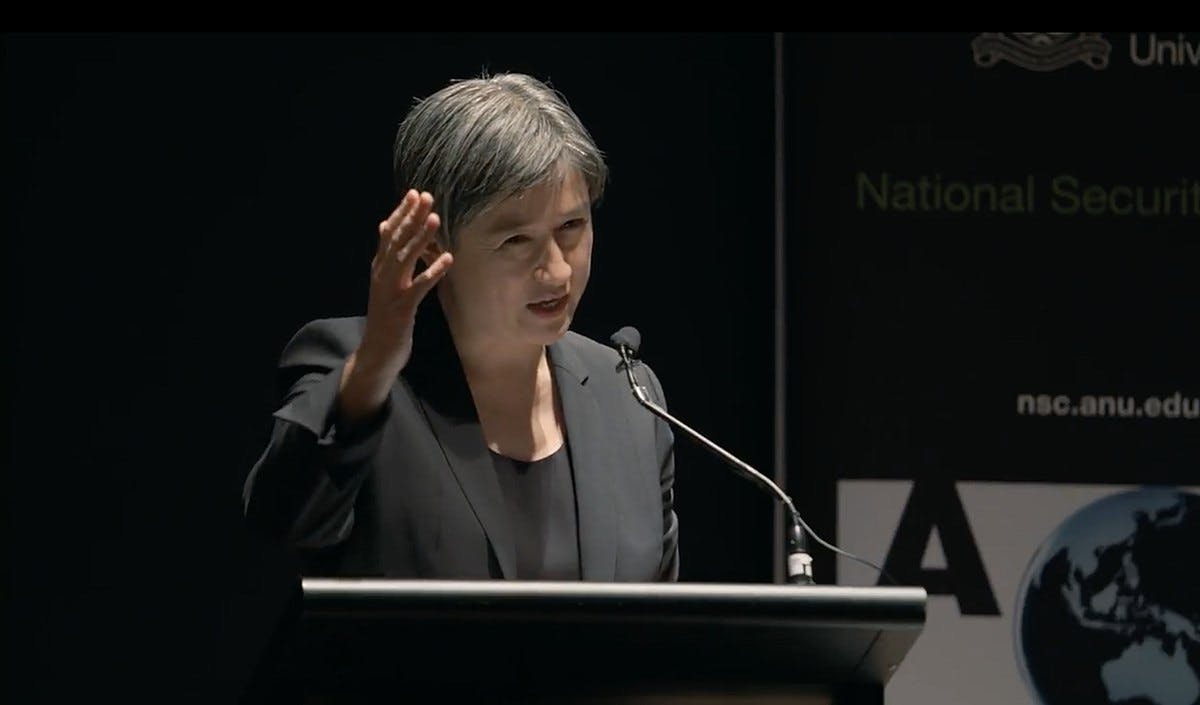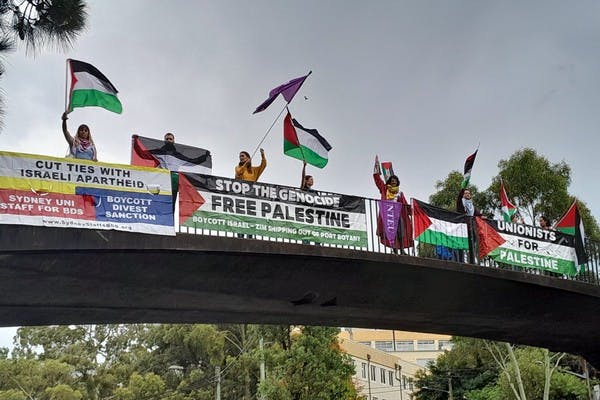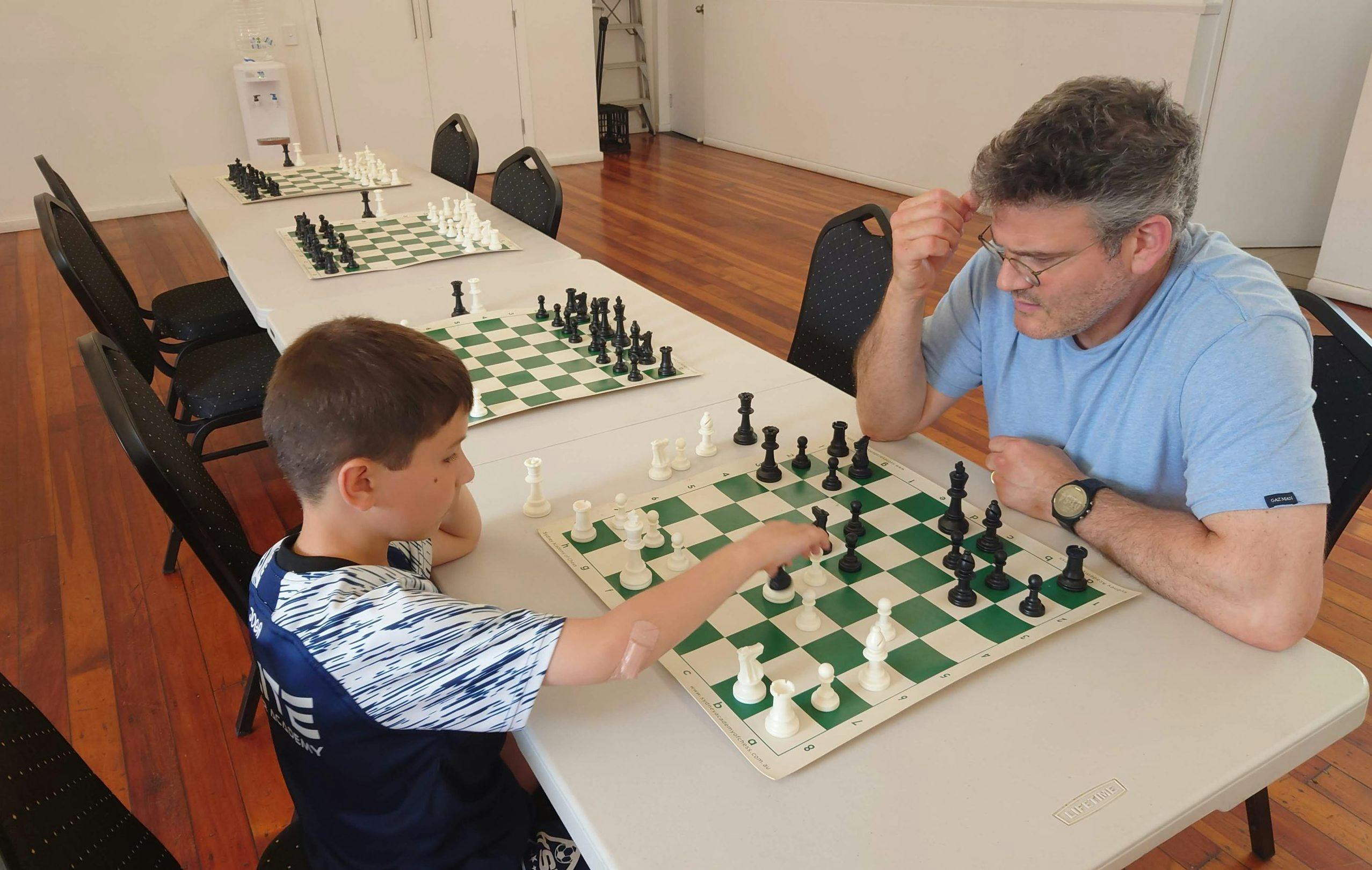Published: 14 March 2023
Last updated: 5 March 2024
Gomeroi woman NICOLE LAUPEPA and Jewish trainer JACQUI PARKER developed the Walking Together workshops to help Australians understand the Uluru Statement.
In anticipation of the Voice Referendum, Walking Together workshops help attendees understand the Uluru Statement and enable the wider community to take positive action towards a more just Australia.
These half-day workshops train participants in how to take meaningful action towards reconciliation. The content covers the importance of a Voice to Parliament, how individuals and organisations can play a role in ensuring it is established, and why reconciliation is an ongoing journey.
The Walking Together program was developed by Cultural Development Manager Nicole Laupepa and professional trainer Jacqui Parker – First Nations and non-Indigenous trainers respectively – through Father Chris Riley's Youth Off the Streets.
The Jewish Independent interviewed Laupepa and Parker about their working relationship.
JACQUI PARKER
What’s your background?
I’m a trainer and Jewish, which is relevant for the connection around the work that Nic and I do in terms of reconciliation. As I’m non-Indigenous, I talk about the facts, while Nic generously and graciously vests her lived experience – so it makes for quite a powerful workshop.
How did you become involved in presenting these workshops?
About four years ago, Nic was leading a workshop around culturally responsive practice, and she got me to work with her on that. Through that process we found … that a lot of people were very keen to work together to support the issues but had no idea how to go about that. So Nic and I decided we’d put together an educational program. We were working just within NSW but now we do a lot of work nationally.
Tell us about the workshops.
We go to a lot of different organisations that request us to educate their people – multicultural and faith-based organisations, corporates and local councils. We do the workshop and then invite people to take part in the Train the Trainer program. We stay very true to the Uluru Statement From The Heart because that is such a great way to talk about the "what" and the "why", and what Voice, Treaty and Truth are all about.
What do you hope to achieve?
We know that educating people on these issues is key, that truth-telling is more about truth listening, and that it all comes down to non-Indigenous Australia. As a daughter of Jewish refugees from the Holocaust, I can see the difference in what occurred where my parents were from - Berlin - in terms of efforts around true reconciliation by the perpetrators to ensure that they come to terms with the past and that those sorts of things don’t happen again. That hasn’t happened in this country.
What has surprised you?
We get a lot of people saying, “I really didn’t appreciate to what extent this was so important – that First Nations people have a Voice”; “I didn’t understand the process”; “I didn’t connect the past with the present”. People are very honest about the fact that they have learnt so much – which is great! I was quite surprised to hear that; we use it to motivate us to take it further.
One of the reasons we don’t over-focus on young people is we know that pretty much, they get it. [The main target group] is the older generation, of which I’m one. Especially 55 above is a very weak cohort [where] we need to focus.
What’s it like working with Nicole?
We’re very close; we’re not only colleagues but she’s also a very dear friend; I think we exemplify what Walking Together looks like … A lot of people tell us that the rapport between us is “contagious”! People really appreciate that.

NICOLE LAUPEPA
What’s your background?
I come from the Gomeroi Nation. Just over four years ago I decided I wanted to work in multicultural Australia and weave the ancient identity of this beautiful nation with the new modern part of our society. I also married into the migrant community; it was really important to me as an Aboriginal woman to weave these two parts of our nation together.
The workshops developed because we were approached by a couple of hundred non-Aboriginal people who wanted to turn support into action but just didn’t know how … I asked Jacqui to attend their next meeting and we developed a workshop that uses the Uluru Statement From The Heart as a framework.
What are you hoping to achieve through these workshops?
I love the Statement because it extends an invitation of reconciliation – this journey isn’t just about Aboriginal or Torres Strait Islander people: this is about all of us, and it’s time that we bring peace to this nation. I always say to people – colonisation divided us; the Statement will unite us.
What are you hoping that these workshops will do to support this?
I think the campaign requires an educational response. Through these workshops, I speak to what it means for an Aboriginal and Torres Strait Islander person and bring in some lived experience testimony, and Jacqui brings in what it means for non-Indigenous Australia. It was important to design a workshop that offered both lenses.
Strengths of each other?
I guess we named the workshop Walking Together because that’s really what this is about. We’ve been good friends and colleagues now for over four years; we’ve been able to role-model that through our workshops. Often people say, “We really love the energy that both of you display within the workshops,” but I guess that’s just [because] we’ve learnt to walk with one another.
Surprises?
I have been amazed to see that through sharing the Statement with multicultural Australia, they have accepted the invitation and walked with First Nation Australians: they have been able to call Australia “home”. They say, “I’ve lived here for 10 years and I’ve never been able to call this country "home" but now that I have an opportunity to walk with First Nations People, I can.” That’s a beautiful thing.
It is that older demographic, over-55 generation, that is not quite sure what the Statement calls for, what will it do for Australia? When I deliver the workshops, they often ask: If Aboriginal people get their human rights, will they take my home?’ I get a little dumb-founded every time I’m asked that question and the answer is No! This is not about taking anything from anybody.
The workshops have done really well in relieving fear in certain communities. They have created a safe environment where we, as Australians, can ask those questions, so people can make an informed decision about what it means to them as an Australian, on how they’ll vote at the referendum.
NEXT WORKSHOP FOR THE JEWISH COMMUNITY
The next workshop is this Sunday at North Shore Temple Emanuel in Sydney. CLICK HERE TO REGISTER
Photo: Jacqui Parker and Nicole Laupepa



